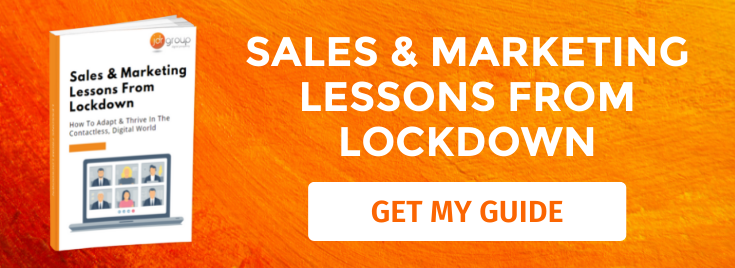No-Fail, Proven Sales Process for Small Businesses

A sales process is a set of repeatable steps that a business uses to close deals and systematically increase revenue. It helps guide potential customers through the buying journey quickly and efficiently and can be tailored to fit any size and variety of projects.
Does your business need a sales process?
A surprising number of small businesses don’t use a formal sales process, instead relying on unspoken conventions and informal distribution of tasks between the business owner/director, her or his senior managers, and the sales team.
This is sometimes sufficient in the early stages of a business when processes are fluid and the business is small enough for one or two people to undertake direct oversight over the full sales and operational aspects of the business. However, once an SME has grown beyond a certain level of complexity and size, having an effective sales process in place is essential for efficient growth, as it can help your sales process to become cheaper and more streamlined while increasing your customer base and bottom line.
How to create a sales process that works
Start by defining what success looks like for you – such as increased revenue, higher sales volume, greater life-term value per customer, higher customer satisfaction ratings, or a combination of factors relevant to your strategic goals. Then map out every step of the current sales process from start to finish, including details like who is responsible for each task – from the moment a prospect gets in touch, all the way through to after sales care once a deal has been signed – and how long each stage should take. It’s also worth considering any problems you encounter with your sales process, the points at which leads are lost, and any persistent difficulties and training needs faced by your team.
Essential factors that contribute to a successful sales process.
A good sales process combines a variety of personalised procedures, practices, and technologies. While the sales process may look different from business to business, there are several common factors found in all successful processes.
- A thorough understanding of customer needs and preferences.
- Comprehensive mapping of the sales process from start to finish.
- Automation wherever possible, such as using CRM software and a cloud-based collaborative sales interface.
- Regular tracking of metrics and analytics to identify areas for improvement.
- Continuous optimisation based on customer feedback.
- Identifying new potential customers or markets.
- Clear communication and accountability between team members about roles and responsibilities.
- Consistent training and support for sales staff.
- Establishing a culture that values results over activity levels.
- Reliable customer service and support after the sale is made.
What technologies are useful for managing your sales process?
Most small businesses have a ‘sales spreadsheet’. However, many SMEs derive value from investing in specific sales-related software platforms, including Customer Relationship Management (CRM) software, analytics tools, automation tools, and CPQ software. These technologies can help small businesses optimise their sales process and increase efficiency – while also shortening the sales cycle and maximising the productive working time of each sales team member.
- CRM software, such as HubSpot CRM or Salesforce, provides greater visibility over mundane but essential tasks like scheduling appointments and tracking leads (among many other things), freeing up time for more important and value-driven activities, and ensuring that no leads go cold due to miscommunication or error.
- Analytics tools allow you to better understand how customers interact with your business throughout the sales process, so you can make adjustments as needed.
- Automation tools help streamline processes such as data entry, database segmenting, email marketing, and follow-ups, in order to save time and money.
- CPQ (Configure Price Quote) software is a specialised tool that provides business owners and their sales staff with better visibility and control over pricing, product configuration, and quoting processes, helping SMEs generate accurate quotes quickly and efficiently by offering pre-configured discount rules and other features that enable customisation for each customer. CPQ software can help streamline the sales process by automatically generating proposals and contracts based on customer input. By automating the quoting process, businesses can reduce the costs associated with manual errors and increase sales efficiency. Many CPQ software platforms also provide powerful inbuilt reports and analytics that allow businesses to identify trends in customer purchasing decisions and optimise their pricing strategies to reflect the market demand.
How to identify areas for improvement in your sales process
Identifying areas for improvement in your sales process on an ongoing basis is essential for achieving success in the long term. To identify areas for improvement, it’s essential to track and analyse metrics such as customer conversion rates, average order size, sales cycle time, cost per sale, customer satisfaction ratings, and more.
By carefully monitoring sales-related metrics on a continual basis and comparing them over time, you can begin to identify trends that may indicate where improvements are needed and plan where efficiencies can be made – e.g. by investing in a new software asset.
Soliciting and recording feedback from customers about their experiences with your business can also help you pinpoint areas where further optimisation is required. Finally, engaging in continuous training and support for your sales staff will help them stay up-to-date on the latest industry developments, best practices, and technologies to support their role, and give them the knowledge to effectively implement changes in their day-to-day interactions with customers.
What next?
JDR provide a range of sales support and business development services for small businesses, helping our customers achieve ambitious growth plans, increase their sales revenue, and lower their cost per sale. To find out more about the benefits for your business, please call today on 01332 343281.
Image Source: Unsplash



